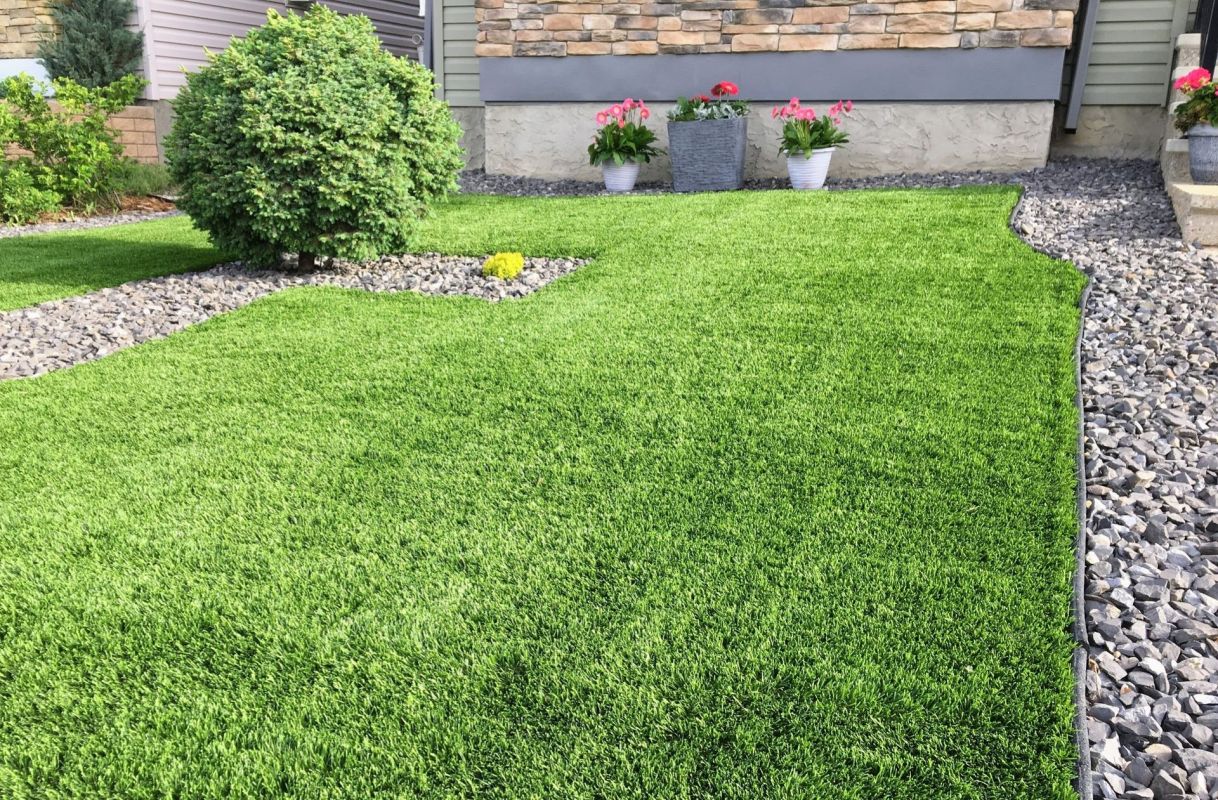Tearing out artificial turf is no mistake.
Because of its many drawbacks — from foul odors and weeds to deadly health hazards — getting rid of the menace makes sense.
One Redditor made that decision a few months ago and worried they'd regret it.
"I've made what is rapidly looking like a mistake in ripping up the my garden's previous owners' artificial grass/astroturf and discovered a solid layer of sand and hardcore," they wrote. "Ideally we'd like to replace this with real grass, probably from seed for cost reasons."
"From my searching, I figure I need to dig up roughly 12.5cm of sand/rubble," they went on. "Does this sound about right please? Can I then just buy in enough top soil to make up those 12.5cm, or should be adding in other material too? I honestly have no idea what I'm doing."
The undertaking seemed like a lot of work, but a safer yard that is better for the environment won't go unnoticed.
"Definitely not a mistake (though any project can feel like that at the start when you realise how much work you have let yourself in for!)," one commenter wrote. "Just keep picturing what you will achieve."
They noted the poster should make sure there is drainage under the topsoil and suggested perhaps going with a wildflower meadow instead of a grass lawn.
Grasses used for lawns are often invasive species, and their maintenance is environmentally costly if done with gas-powered equipment, which accounts for 5% of air pollution in the United States, according to the Environmental Protection Agency.
Wildflowers and native plants can boost the biodiversity of an area and aid pollinators and other fauna. Local flora also reduces air pollution, uses less water, prevents erosion, and doesn't require fertilizers.
Another big problem with artificial turf is that it probably won't get recycled. The material is marketed as recyclable, but it's made of plastic. Unless it's a special kind of turf, the extent of its recyclability is likely that it can be reused by someone else.
"Good for you OP!" one user wrote. "I did the same. It was hard work but worth it. You have opportunity to start a tapestry lawn if you fancy. If you do want grass, throw in plenty of clover seed to help fix the nitrogen in the soil."
Another commenter similarly assured the poster. "You haven't mad[e] a mistake. The more toxic artificial grass removed the better for the environment. I think your suggestion is just fine."
Join our free newsletter for easy tips to save more, waste less, and help yourself while helping the planet.









